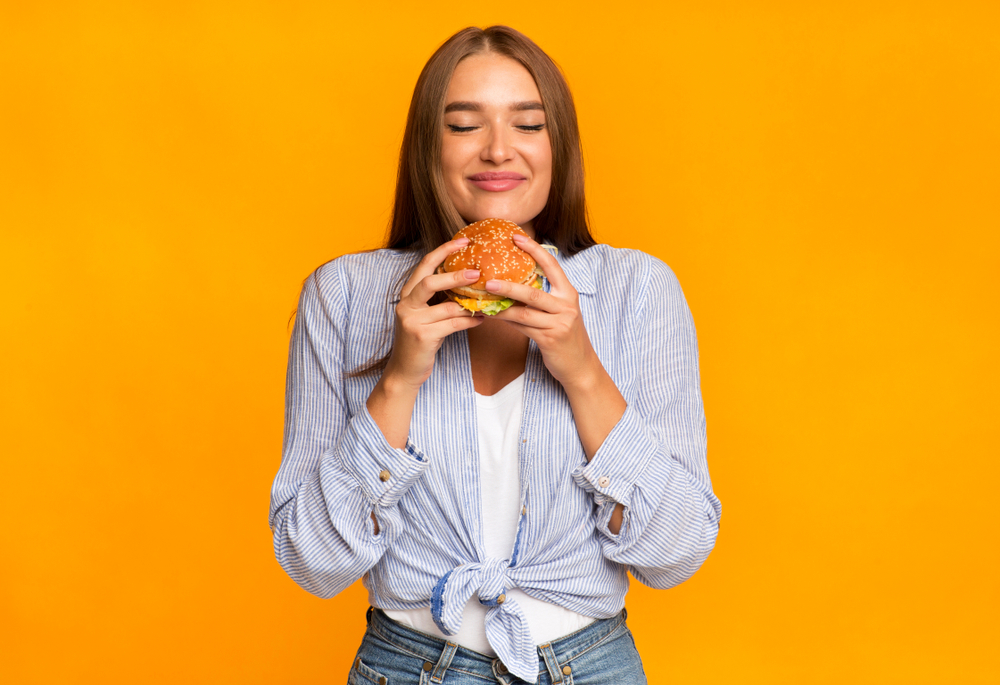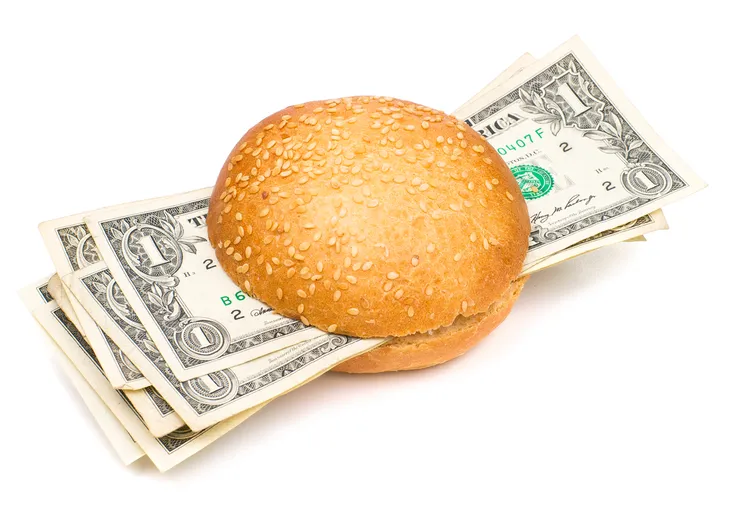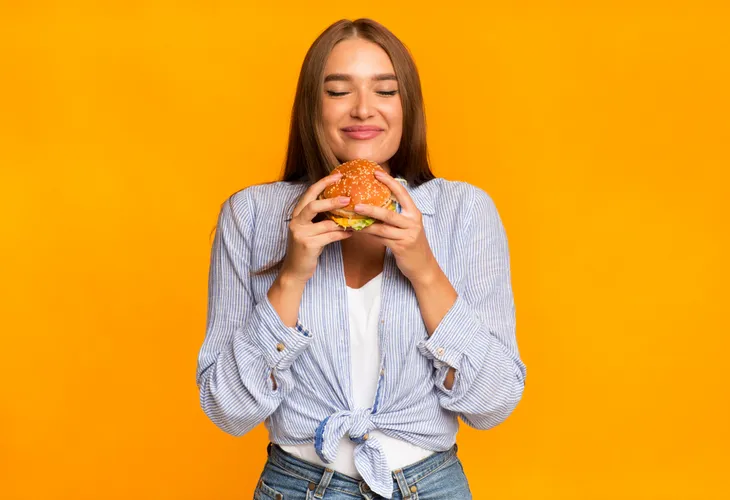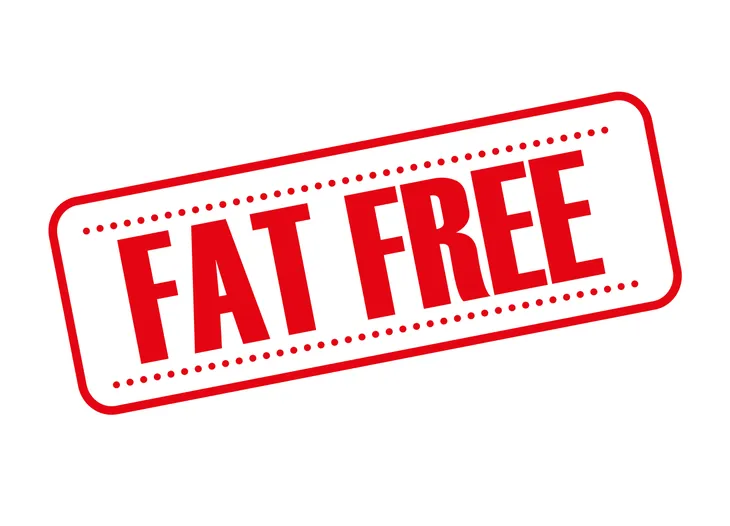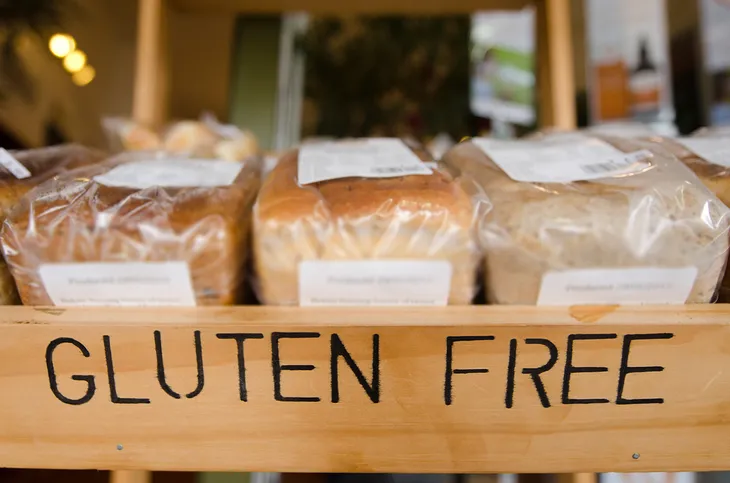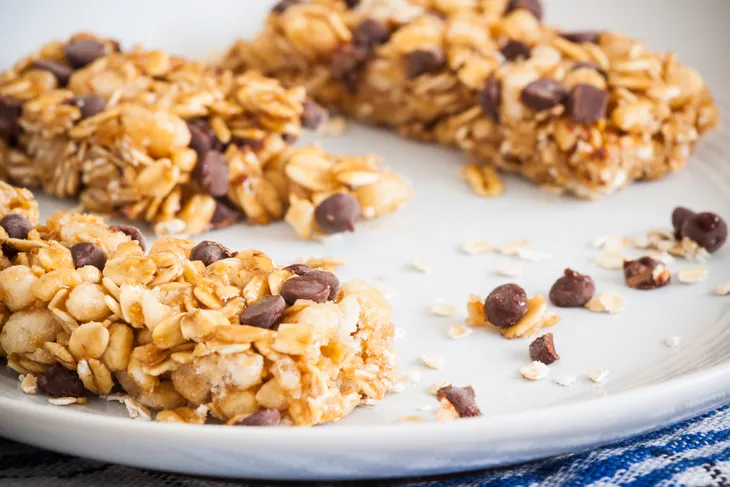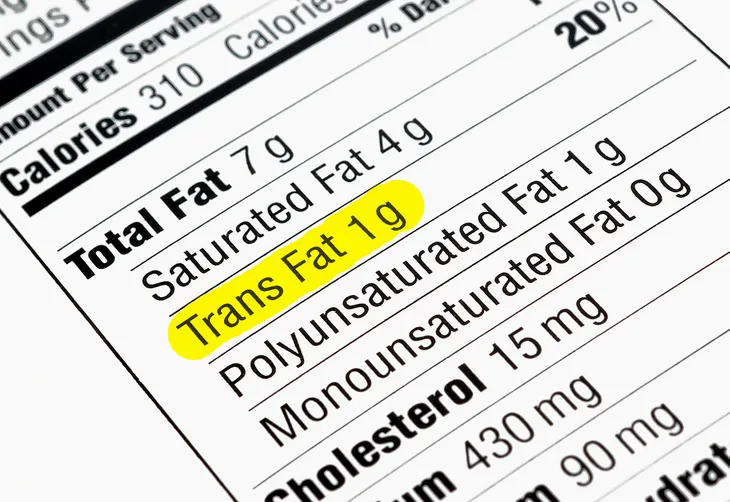If you don’t believe that the eyes are stronger than the stomach when it comes to eating junk food, I dare you to watch an evening line-up of sitcoms without carving a bacon double cheeseburger and fries or a bowl of ice cream.
In reality, every other commercial spot bought is meant to bait you with delectable images—despite the unhealthy consequences. The fast food industry doesn’t care about you having the energy to get to the gym. And it uses these eight sneaky strategies to trick you into eating your weight, and more, in greasy, fatty, sugary, processed fast foods…
Instant Gratification
The fast food industry is built on convenience or instant gratification. It’s the food you turn to when you’re ravenous or stressed or sad or too tired to make a healthy meal at home. That’s exactly why it’s so tough to ignore the line-up of fast food drive-thru windows beckoning you to “save precious time” after a draining day at the office or when you only have a 10-minute lunch break.
Deals, Deals, and More Deals!
In addition to saving precious time, the fast food industry and its deals revolve around seemingly saving you money as well. Just think about how easy it is to justify eating pizza for the week when you’ve scored a fantastic BOGO (buy one get one free) pizza deal. The savings are almost enough to make you forget all about the fact that you could be eating a healthier meal.
One-Two Punch to the Senses
Sure, it might be easy to resist the view of a bakery counter heaped full of sweet cupcakes, but once you get a whiff of that sweet scent of moist cake covered in chocolate icing, you go weak at the knees. Don’t be embarrassed, you’re not alone, and the fast food industry knows where your weaknesses lie when they hit you with a hard one-two punch of sight and smell.
Portion Distortion
It’s rare when eating chips that you can eat just one or even stop at a handful for that matter. French fries, potato chips, cheese puffs, and every other snack food on the market might boast “only 150 calories per serving” however, think about how rarely you only eat one cup of ice cream, one cookie, 15 potato chips, or 25 pretzels in a sitting. Realistically, we’re all more apt to eat the entire pint or bag before we realize we’ve gone overboard.
Fat-Free
Just because a snack food claims that it’s “fat free” doesn’t mean it’s healthy. Consider the many “sugar free” or “fat free” beverages that might not contain sugar, but probably make up for it with aspartame and a bunch of other toxic, chemical ingredients. Many times, fat-free products not only lack fat—they lack any and all nutritional value.
Gluten-Free
With all of the gluten-free diets touting miraculous weight loss, it was just a matter of time before the convenience food industry decided that slapping a “gluten free” label on packaging would make consumers associate their product as a “healthy” or “diet” food.
In reality, not all gluten-free products are healthy (just like not all fat-free) products are healthy. Often, gluten-free products are full of refined sugar, cornstarch, potato starch and other additives that cause a spike in blood sugar levels and inevitably cause you to overeat.
Junking Up Healthy Foods
The processed food industry sure is sneaky. If you don’t believe me consider what it’s done to a string of healthy foods—like oatmeal. A bowl of oats by itself is quite a healthy breakfast. However, when you add things like refined sugar and chocolate chips, suddenly that healthy bowl of oats is over inundated with junk. The same goes for healthy foods and drinks such as yogurt, fruit blends, trail mix, fruit smoothies, and granola bars.
Catch Phrase Tunnel Vision
Go to the grocery store and peruse the aisles. It won’t take long for you to find a food with the phrase “low in trans fats” slapped on the packaging. Certain big name snack food manufacturers make potato chips that are indeed low in unhealthy trans fats.
However, the food industry is aware that the majority of North Americans know very little about nutritional value and trust that you’ll focus on the fact that the product is “low in trans fat” and ignore everything else. I call this catch phrase tunnel vision, which means that while those chips are low in trans fats—they’re still super high in sodium, calories, additives, and other unhealthy ingredients.
